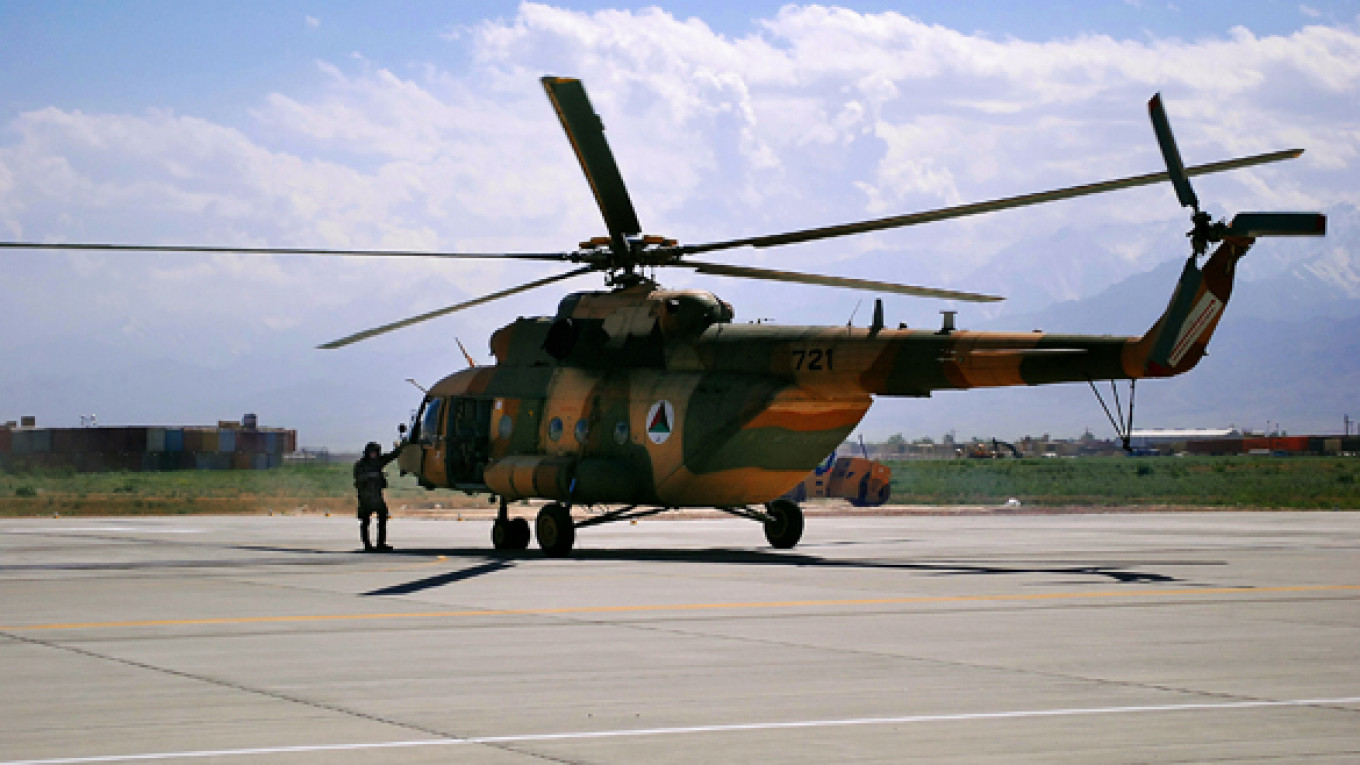WASHINGTON — A government watchdog criticized the Pentagon on Friday for forging ahead with controversial helicopter purchases from a Russian arms dealer despite warnings that the Afghan special forces unit due to receive the aircraft could not fly or maintain them.
The watchdog — the Special Inspector General for Afghanistan Reconstruction — urged the Pentagon to suspend the $553 million Russian arms deal as well as a $218 million contract for 18 planes from a U.S. firm until plans were in place to fully recruit and train the Afghan special forces unit.
The Pentagon was already under fire for agreeing this month to buy 30 additional Mi-17 helicopters from the Russian arms dealer, Rosoboronexport. That company is a major supplier of weapons to Syrian President Bashar Assad, who is battling rebels trying to overthrow his government.
U.S. intelligence agencies concluded this month that Assad's forces have used chemical weapons, and the White House announced on June 13 that President Barack Obama had decided to provide direct military assistance to the Syrian opposition. The Pentagon announced the helicopter purchase five days later.
John Sopko, the special inspector general, noted in a letter to Defense Secretary Chuck Hagel that the Army entered into the new purchase agreement even though the Pentagon had a draft report from SIGAR recommending that aircraft purchases for the Afghan unit be suspended.
"We maintain that moving forward with the acquisition of these aircraft is imprudent," Sopko said in the letter.
The helicopter purchases are a difficult issue for the Pentagon. Defense officials say the Mi-17 is the best choice for Afghanistan because the aircraft handles the terrain and climate well, and Afghan pilots, air crews and maintenance workers have dealt with the craft since the 1980s.
While U.S.-made helicopters would be a more sophisticated purchase, they are sensitive to Afghanistan's extreme conditions and require more specialized maintenance and longer training to master, they said.
Shifting the Afghan military to a significantly different aircraft would require completely retraining the fliers and maintenance workers, delaying the effort to build the country's helicopter capacity by about three years, said Lieutenant Colonel Jim Gregory.
The special inspector general, in its investigation of the aircraft sales, found that the Afghan Special Mission Wing, which will support counterterrorism and counternarcotics operations, had only 180 personnel earlier this year, less than a quarter of the 860 people envisioned for the force by July 2015.
Control of the force initially was to be split between the Afghan Interior and Defense ministries, and tensions between the departments was hampering recruitment, the report said. A memorandum of understanding shifting control to the Defense Ministry has been drafted but remains unsigned, it said.
The inspector general recommended that aircraft purchases for the unit be suspended until the memorandum was signed transferring command and control of the unit to the Defense Ministry.
His office also recommended a series of other steps, including tying acquisition and delivery of new aircraft to completion of personnel and other milestones and developing plans for transferring maintenance and logistics to the Afghans.
The Pentagon and NATO training mission in Afghanistan rejected the request to suspend the aircraft contracts, saying it would delay efforts to build the unit into a capable force. They agreed to SIGAR's other recommendations.
The Pentagon began buying helicopters for Afghan forces from Rosoboronexport in May 2011, when it agreed to purchase 21. Last year it exercised an option to buy an additional 12, bringing the total to 33.
Including the new contract this month, the Pentagon has spent more than $1 billion on helicopters and related maintenance and service with the Russian firm.
The arms deals with Rosoboronexport have outraged some U.S. lawmakers. Representative Rosa DeLauro of Connecticut, who sponsored a ban on such purchases, said it was "simply outrageous" for the United States to be buying weapons from Assad's top arms supplier.
Congress barred purchases from Rosoboronexport in the 2013 National Defense Authorization Act, but officials said the Pentagon used 2012 funding to pay for the 30 helicopters purchased this month.
Prime Minister Dmitry Medvedev and his Fijian counterpart, Josaia Voreqe Bainimarama, signed a military-technical cooperation agreement after meeting on Friday in Moscow, Interfax reported.
Russia, which is currently unrepresented on the Fijian arms market, is ready to supply a range of gunboats and infantry equipment to the small Pacific island country, said Alexander Fomin, director of the Federal Service for Military-Technical Cooperation.
Fiji's Defense Minister, Joketani Cokanasiga, will attend an international naval show running from July 3 to 7 in St. Petersburg, the Fiji Times reported.
Related articles:






